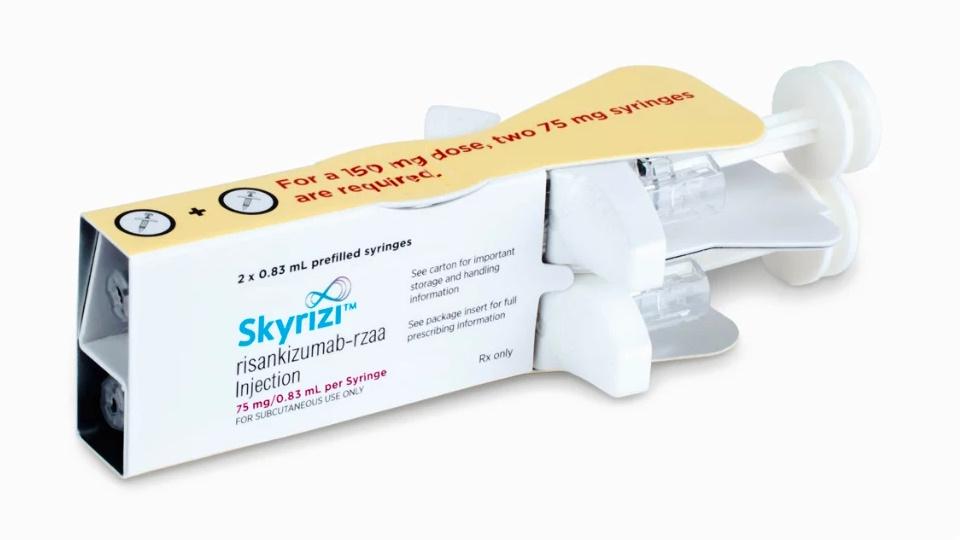AbbVie breaks new ground for IL-23 drug Skyrizi in IBD

AbbVie’s Skyrizi has been approved by the FDA as a treatment for ulcerative colitis, making it the first IL-23 inhibitor indicated for both major types of inflammatory bowel disease (IBD) – UC and Crohn’s disease – in the US.
Skyrizi (risankizumab) was previously already cleared by the FDA for adults with moderately to severely active Crohn's disease, active psoriatic arthritis, and moderate to severe plaque psoriasis.
The approval in UC is based on the results of a 12-week induction study called INSPIRE and a 52-week maintenance study called COMMAND.
The new use in adults with moderately to severely active UC makes the drug an option for some of the million or so people in the US living with UC and is a boost to AbbVie’s efforts to grow Skyrizi as it faces a fall in sales of immunology blockbuster Humira (adalimumab), now facing biosimilar competition.
The newer drug generated $7.7 billion in revenue in 2023, a 50% increase over the previous year, as Humira sales dropped from $21 billion in 2022 to just over $14 billion and are expected to contract further this year and beyond.
In UC, Skyrizi faces direct competition from Eli Lilly’s IL-23 inhibitor Omvoh (mirikizumab), approved by the FDA last year, although that isn’t yet approved for Crohn’s disease.
The IBD category overall is becoming increasingly crowded, however, with other rivals including Johnson & Johnson’s IL-12 and IL-23 inhibitor Stelara (ustekinumab) and Takeda Pharma’s α4β7 inhibitor Entyvio (vedolizumab), both of which are approved for both UC and Crohn’s, as well as biosimilars of Humira and other TNF inhibitors.
J&J’s IL-23 inhibitor Tremfya (guselkumab), meanwhile, has also been filed for UC and Crohn’s, with a decision due in the coming months, although, AstraZeneca shelved its own drug in the class, brazikumab, last year after concluding that the competition in IBD is becoming too fierce.
Oral therapies have also staked a claim to the UC market, including Bristol-Myers Squibb’s Zeposia (ozanimod) and Pfizer’s Velsipity (etrasimod) – both S1P inhibitors – and AbbVie’s JAK inhibitor Rinvoq (upadacitinib).
Rinvoq is the other drug that AbbVie has developed to defend its immunology franchise, and is also growing well, with sales of nearly $4 billion last year across seven indications.
Analysts at GlobalData have predicted that, fuelled by new indications, the two drugs could make peak combined sales of $32 billion by 2020, with Skyrizi accounting for around $20 billion of that total.













